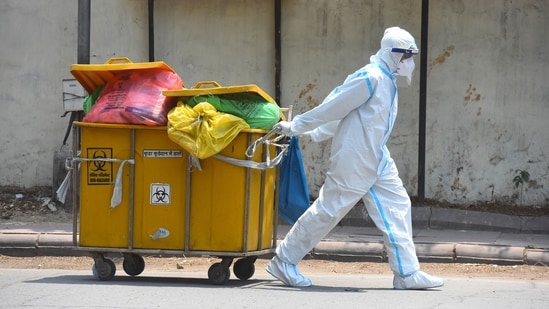Biohazard waste regulations are crucial for medical facilities to ensure safe handling and disposal of potentially infectious materials. These regulations govern how biohazard waste, such as contaminated materials and sharps, should be managed to protect both healthcare workers and the public. In this comprehensive guide, we will explore the key aspects of biohazard waste regulations, providing valuable information, tips, and insights to help medical facilities comply with these important standards.

Understanding Biohazard Waste Regulations
Biohazard waste includes any materials that are potentially contaminated with pathogens, such as blood or other bodily fluids, tissues, cultures, and medical sharps. Biohazard waste regulations aim to minimize the risk of exposure to infectious diseases and ensure safe handling from the point of generation to final disposal. Compliance with these regulations is essential for maintaining a safe healthcare environment and preventing the spread of infections.
Key Components of Biohazard Waste Regulations
Identification and Classification of Biohazard Waste
Proper identification and classification of biohazard waste are critical. This includes distinguishing between different types of biohazard waste, such as infectious waste, sharps waste, and pathological waste. Each type requires specific handling and disposal procedures to minimize risks.
Safe Handling and Segregation
Healthcare facilities must implement strict protocols for the safe handling and segregation of biohazard waste. Use color-coded bins and containers to separate different types of waste to prevent cross-contamination. Sharps waste should be disposed of in puncture-resistant containers immediately after use.
Storage Requirements
Biohazard waste must be stored in designated areas that are secure, well-ventilated, and inaccessible to unauthorized personnel. Containers should be leak-proof, labeled with biohazard symbols, and regularly inspected to ensure integrity. Proper storage reduces the risk of exposure and ensures compliance with regulations.
Transportation and Disposal
Transporting biohazard waste requires compliance with strict guidelines to protect handlers and the public. Use certified biohazard waste transporters and ensure all waste is properly packaged, labeled, and accompanied by necessary documentation. Biohazard waste should be disposed of in approved facilities equipped to handle infectious materials safely.
Training and Education
Proper training of healthcare staff is essential for compliance with biohazard waste regulations. Provide training on waste identification, segregation, handling procedures, and emergency response protocols. Regular education ensures that all staff understand their roles in maintaining a safe environment and preventing infections.
Steps to Ensure Compliance with Biohazard Waste Regulations
Conduct a Waste Assessment
Start by assessing the types and volumes of biohazard waste generated by your facility. Identify areas where improvements can be made to enhance safety and compliance with regulations.
Develop a Biohazard Waste Management Plan
Create a comprehensive plan that outlines procedures for the safe collection, segregation, storage, transportation, and disposal of biohazard waste. Include contingency plans for emergencies and regular reviews to update practices as needed.
Use Proper Personal Protective Equipment (PPE)
Ensure that healthcare workers handling biohazard waste have access to and use appropriate PPE, such as gloves, masks, gowns, and eye protection. PPE reduces the risk of exposure to infectious materials and is essential for compliance with safety protocols.
Regular Audits and Compliance Checks
Conduct regular audits of biohazard waste management practices to identify any gaps or areas for improvement. Review compliance with regulations, including documentation and staff training records. Address findings promptly to maintain a safe and compliant healthcare environment.
Stay Informed About Regulatory Updates
Biohazard waste regulations may evolve over time to reflect new safety standards and best practices. Stay informed about regulatory updates through industry publications, training sessions, and consultations with waste management experts. Implement changes to policies and procedures as necessary to ensure ongoing compliance.
The Importance of Compliance
Complying with biohazard waste regulations is essential for protecting healthcare workers, patients, and the community from the risks associated with infectious materials. Proper management of biohazard waste reduces the spread of infections and ensures a safe healthcare environment. Non-compliance can result in legal consequences, fines, and reputational damage to medical facilities.
Biohazard waste regulations are critical guidelines that medical facilities must follow to maintain safety and compliance in handling infectious materials. By understanding the key components of biohazard waste regulations and implementing effective waste management practices, healthcare facilities can mitigate risks, protect staff and patients, and uphold regulatory standards. Embrace these guidelines, provide ongoing education to staff, and conduct regular audits to ensure your facility meets and exceeds biohazard waste regulatory requirements.





